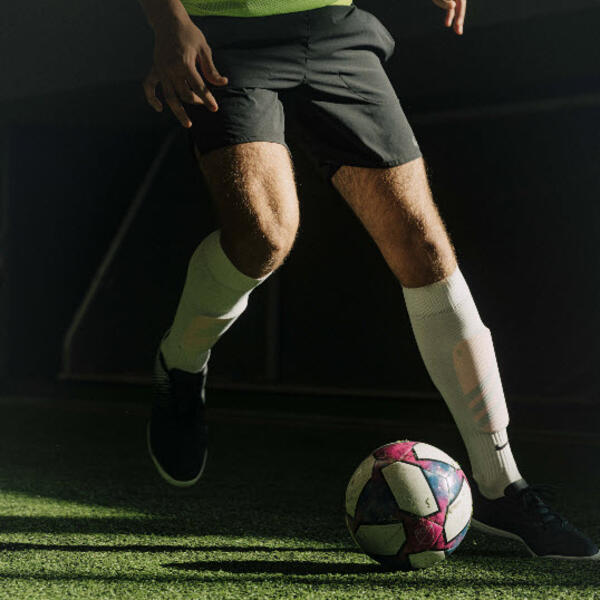Releases
WADA leadership holds productive meetings with more than 60 Governments of the world

Over the past few months, the World Anti-Doping Agency (WADA) President Witold Bańka and Director General Olivier Niggli have made it a priority to meet with WADA stakeholders from across the globe. In addition to meetings held with athletes, National Anti-Doping Organizations (NADOs) and the Sport Movement, they have also met with numerous sports ministers and other Government representatives responsible for anti-doping.
These meetings, which have included more than 60 Governments, have taken place both virtually and in person, as restrictions related to the COVID-19 pandemic began to ease in certain regions.
WADA President, Witold Bańka, said: “As a former Public Authority representative on WADA’s Executive Committee, I have first-hand knowledge of the important role that Governments play within WADA’s governing structures and the global anti-doping system. It is vital that WADA leadership meets with sports ministers and other Government representatives from different regions of the world to hear their perspectives and discuss how to further strengthen the national and international legal frameworks. This allows us to collaborate more effectively with them in order to safeguard the integrity of the anti-doping systems in each country.”
WADA Director General, Olivier Niggli, said: “As we have committed to do as part of WADA’s 2020-2024 Strategic Plan, it is key that we engage and collaborate with all of our stakeholders to ensure that we are delivering on our mission for doping-free sport. Each country, no matter the size or number of athletes, is an important part of the global anti-doping system. It is essential that we speak regularly with Public Authorities to exchange on their policies and provide assistance where and when needed.”
Some of the main topics discussed during meetings with Public Authority representatives have included:
- Presenting WADA’s priorities and current areas of development and innovation, such as athlete engagement and scientific research, including dried blood spot technology;
- Providing a progress report on the implementation of WADA's wide-ranging governance reforms;
- Explaining WADA’s strategy to further enhance its funding model, including through the development of additional sources of funding;
- Encouraging further active cooperation between Governments and other stakeholders to ensure that the anti-doping community is collaborating effectively and working together towards the same goal.
From WADA’s perspective, these meetings have been very productive and much appreciated. Based on positive feedback received from many of the Public Authority representatives who participated, they feel likewise.
Minister of Youth and Sports in the Government of Egypt, Dr. Ashraf Sobhy, said: “We greatly appreciated the visit of WADA’s President to Cairo, a visit which will undoubtedly contribute to even closer working relations between the Egyptian Ministry of Sport, the Egyptian sports community and the anti-doping movement. Egypt will continue to support the work of WADA and do its part in the global effort to ensure that athletes have the best possible opportunities to realize their dreams, goals and ambitions in a fair and clean environment.”
State Minister of Education, Culture, Sports, Science and Technology from the Government of Japan, Hideki Niwa, said: “Organizing the Olympic Games and meeting President Banka and Director General Niggli on such an occasion was a great opportunity for Japan to reinforce our support for clean sport and share this message across the world. We value very much our excellent cooperation with WADA, which allows us to develop several initiatives, such as the annual Japan Anti-Doping Agency symposium and innovative anti-doping education programs.”
Minister for Education, Science, Youth and Sport from the Government of Slovenia, Prof. Dr. Simona Kustec, said: "We had a very fruitful meeting with the leadership of WADA discussing the priorities of the Slovenian presidency of the Council of the European Union in the field of sport and the COVID-19 situation. Although we are going through a very challenging time, I am pleased that we had the opportunity to exchange views and to build mutual trust in working together to address sport and its values at the highest level. Our common responsibility and goal remain to assure circumstances that enable clean sport partnership and implementation."
The countries and representative bodies with which WADA’s President and Director General have met include:
- African Union
- Assembly of the American Sports Council
- Argentina
- Australia
- Botswana
- Brazil
- Bulgaria
- Canada
- Chile
- China
- Colombia
- Council of Europe
- Cuba
- Ecuador
- Egypt
- European Commission
- Ethiopia
- Fiji
- France
- Germany
- Ghana
- Greece
- Hungary
- India
- Indonesia
- Jamaica
- Japan
- Jordan
- Kazakhstan
- Kenya
- Kuwait
- Maldives
- Malta
- Mauritius
- Monaco
- Morocco
- Namibia
- New Zealand
- Nigeria
- Norway
- Panama
- Paraguay
- Poland
- Qatar
- Republic of Korea
- Saudi Arabia
- Senegal
- Singapore
- Slovenia
- South Africa
- Sweden
- Tunisia
- Turkey
- Ukraine
- United Arab Emirates
- United Kingdom
- United States of America
- Uruguay
- Thailand
- Ministers and representatives of 21 Governments from East, South, and South-East Asia
- Ministers and representatives of Governments from the Sport Council of the Americas
The WADA President and Director General also met with several Public Authorities in person during the 2020 Olympic Games in Tokyo.
Find out more about the Public Authority representatives on WADA’s Executive Committee and Foundation Board on WADA’s website.

